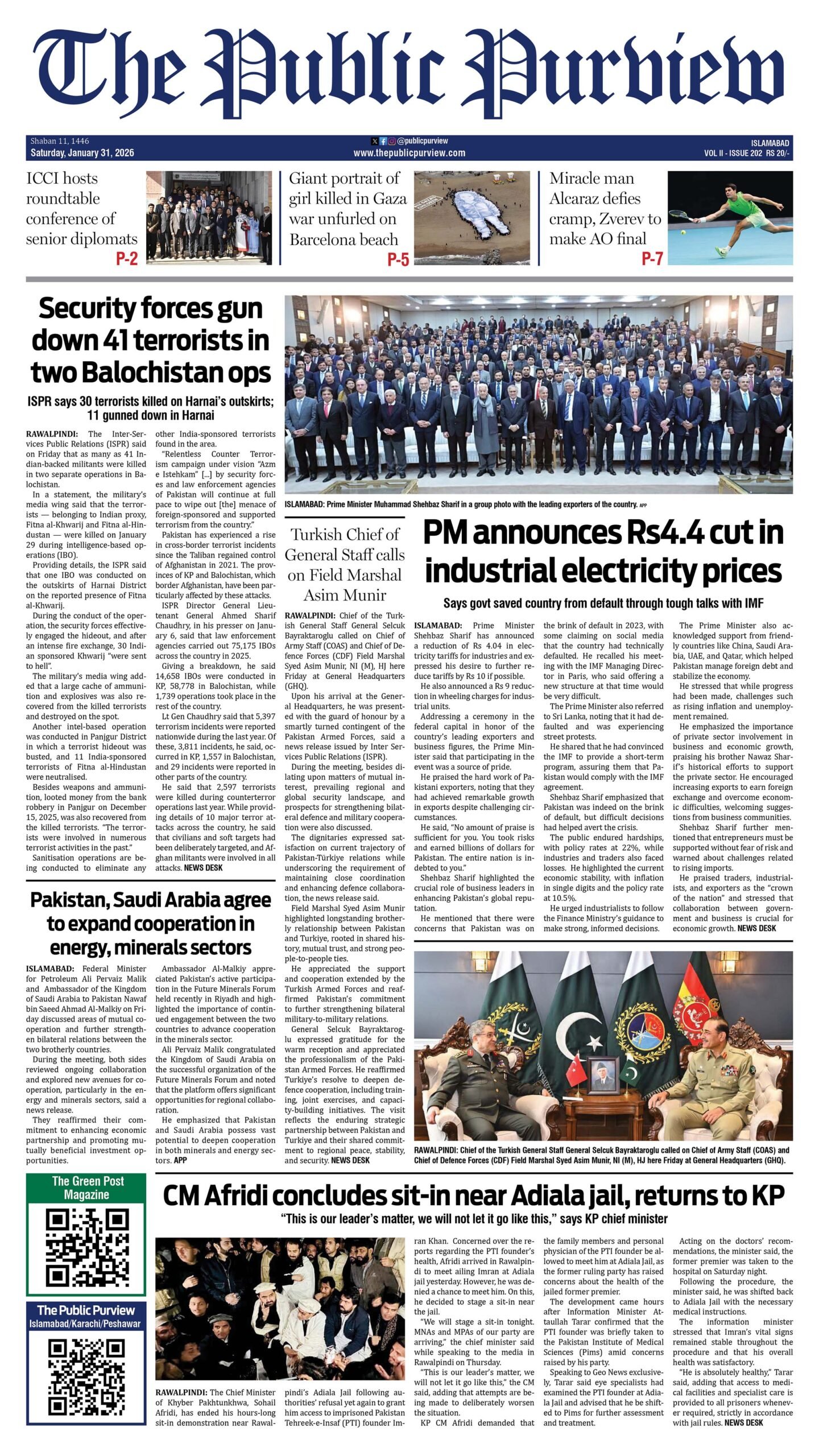Allama Iqbal, a philosopher, poet, and visionary, left an enduring legacy that continues to shape the identity and aspirations of Muslims, particularly in Pakistan. His poetry and philosophy instilled a deep sense of awareness and responsibility among Muslims, urging them to rise above their circumstances and create a society based on Islamic values. Iqbal envisioned an independent state, not only as a sanctuary for Muslims but as a moral beacon—a place where spiritual values, integrity, and justice would be deeply rooted. His dream was of a nation that would stand as a model for the world, showcasing the best of Islamic values and creating a society that reflected the true essence of Islam.
Iqbal’s Dream: An Independent State Rooted in Islamic Values
Iqbal’s dream was to establish a state founded on the principles of Islam, one that would foster moral growth and uphold justice. For Iqbal, Islam was not merely a set of rituals but a complete way of life, addressing all aspects of individual and collective existence. He believed that an Islamic state would embody qualities like honesty, equality, justice, and compassion, creating a society where the weak are protected, the powerful act responsibly, and everyone contributes to the common good.
Iqbal’s vision went beyond political independence. He dreamed of a nation of individuals who would rise above petty desires, devote themselves to the service of humanity, and cultivate qualities like humility, honesty, and self-respect. His vision was of a society where knowledge, discipline, and a sense of duty would guide people’s actions. He wanted Pakistan to become a place where Islamic values would not just be preached but practiced, forming the backbone of everyday life.
In essence, Iqbal’s dream was for Muslims to create a society where morality was valued as highly as material progress. He believed that faith, discipline, and collective effort could turn Pakistan into an exemplary state, a guiding light for others seeking justice and equality.
The Reality of Pakistan: A Stark Contrast
The creation of Pakistan in 1947 was the first realization of Iqbal’s dream. Leaders like Muhammad Ali Jinnah and others struggled and sacrificed to carve out an independent homeland for Muslims in the subcontinent, and their success was a historic achievement. However, over the years, the initial ideals that inspired Pakistan’s creation have faded, and the reality of the nation today stands in stark contrast to Iqbal’s vision.
Pakistan faces a multitude of challenges that have hindered its development as an ideal Islamic state. Corruption is widespread, affecting nearly every level of society, from high-ranking officials to ordinary citizens. According to various global indices, Pakistan ranks among the most corrupt nations, a reality that undermines justice and fairness and limits opportunities for genuine progress. The consequences of corruption are felt across the board—education, healthcare, and even basic social services suffer, leaving the majority of citizens struggling to access their rights and basic needs.
Moreover, social vices such as dishonesty, backbiting, and leg-pulling have become distressingly common. Many Pakistanis, particularly the youth, engage in gossip, spread false information, and indulge in behaviors that weaken social cohesion and trust. Instead of lifting each other up, people are often quick to criticize, disparage, or undermine the achievements of others. This culture of backbiting, leg-pulling, and spreading rumors not only damages personal relationships but also erodes the fabric of society, leading to a general atmosphere of distrust and resentment.
The youth, who should be the torchbearers of Iqbal’s ideals, are increasingly drawn toward superficial pursuits. The rise of social media has only fuelled this trend, encouraging a culture of comparison and materialism. Instead of focusing on personal growth, self-discipline, and contribution to society, many young people are more concerned with projecting an idealized image online, seeking validation through likes and followers. In addition, a significant portion of the youth has become indifferent to the concept of national service or self-improvement. They often resort to shortcuts, unethical practices, and even illegal means to achieve success. Lying, cheating, and evading responsibility have become disturbingly normalized in some circles, detracting from the ethical foundation that Iqbal envisioned.
Iqbal’s Second Interpretation: The Ideal That Pakistan Could Be
Iqbal’s dream of Pakistan as a morally upright, exemplary state now appears as a second interpretation—a standard that Pakistan has yet to reach. Iqbal’s initial ideals seem to have become distant, replaced by a harsh reality that starkly contradicts his aspirations. The vision of a state built on faith, discipline, and integrity has been replaced with corruption, dishonesty, and a general disregard for moral values.
However, all is not lost. To realize Iqbal’s true vision for Pakistan, we need to take conscious, collective action. If we are to make his dream a reality, we must start by addressing the moral failings that have taken root in our society.
Suggestions for Realizing Iqbal’s Vision
Fostering Moral Education: The first step toward reviving Iqbal’s vision is to reform our educational system. Schools, colleges, and universities should not only focus on academic achievement but also prioritize moral education. By teaching students about honesty, integrity, empathy, and respect, we can instill values that will guide them throughout their lives. Religious teachings should emphasize the importance of good character and ethical conduct, demonstrating that Islam advocates not only faith but also an unwavering commitment to morality.
Eliminating Corruption: Corruption is perhaps the biggest obstacle to Pakistan’s progress. Establishing stricter laws against corruption and implementing accountability measures at every level of government and society are essential. Leaders and officials should lead by example, demonstrating transparency and accountability. Citizens must also take responsibility, refusing to participate in corrupt practices and holding those in power accountable.
Encouraging Civic Responsibility: Iqbal’s vision required every individual to play an active role in society. Pakistanis should be encouraged to contribute positively to their communities, whether through volunteer work, social services, or other forms of civic engagement. This could foster a sense of pride, unity, and shared purpose, promoting collective efforts to tackle national issues.
Resisting Social Evils: To address issues like backbiting, gossiping, and dishonesty, Pakistanis need to cultivate self-awareness and personal accountability. Parents, teachers, and community leaders can play a pivotal role in guiding youth toward positive behaviors and helping them understand the destructive impact of such habits. A collective effort to discourage negative practices and promote mutual respect can gradually shift societal norms.
Role Models and Mentorship: The younger generation needs positive role models who embody Iqbal’s values. Figures from various fields who have achieved success with honesty and integrity can serve as examples, inspiring the youth to follow a similar path. Programs that connect young people with mentors can encourage them to pursue personal and ethical development.
Embracing Islamic Values: Finally, we must return to the principles that Iqbal championed. Islam’s teachings emphasize compassion, justice, honesty, and respect for others. By realigning our personal and societal values with these teachings, we can create a nation that reflects Iqbal’s vision. This includes practicing humility, showing compassion to those in need, and working towards justice in every sphere of life.
Allama Iqbal’s dream was not just about creating a state; it was about building a society that would serve as a model of Islamic values. While Pakistan’s current state may not reflect this vision, there is still an opportunity to work towards realizing it. We can take meaningful steps toward fulfilling Iqbal’s ideals by addressing the moral failings that have taken root, reforming our institutions, and cultivating a renewed sense of responsibility. It is only through personal integrity, collective effort, and adherence to Islamic principles that we can make Iqbal’s dream for Pakistan a reality and transform it into a truly exemplary state.






 Today's E-Paper
Today's E-Paper